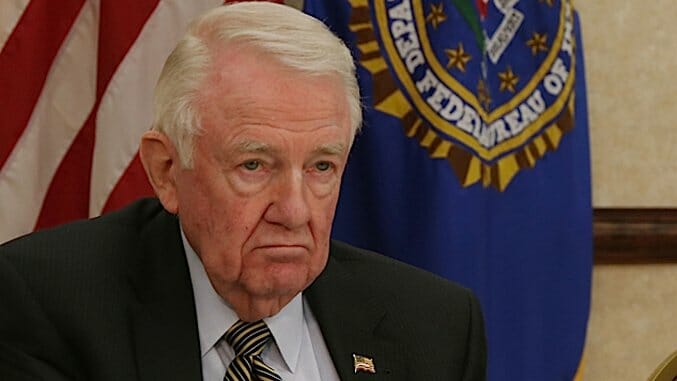Are the Republicans Coming For Your Porn?
With a GOP stronghold, porn may come under attack
Photo by Mark Wilson/Getty
The election is over, and while your guns might be safe, America, you better hide your porn. The Republicans are coming! This is not a drill.
Although Red States consume porn at higher rates than Blue, the Republican Party has ironically declared porn a “public health crisis.” According to a provision set in July: “Pornography, with its harmful effects, especially on children, has become a public health crisis that is destroying the lives of millions.”
Republican delegates unanimously adopted the amendment, which further condemns porn and modifies their 2012 platform language urging active prosecution against child pornography and stating that “current laws on all forms of pornography and obscenity need to be vigorously enforced.”
On the heels of the amendment, then Presidential nominee Trump took a pledge to crack down on pornography if elected President. It’s a confusing state of affairs, because Trump himself has appeared in a softcore porn video, graced the cover of Playboy magazine, and is married to a former nude model.
Post-election, the future of porn and what constitutes free speech is under the microscope, and possibly under attack. The uncertainty has sent ripples through the adult entertainment industry.
“The common sentiment is that the new administration could be less friendly toward adult entertainment,” says Alec Helmy, president of XBiz, the adult entertainment news publisher. However, he remains optimistic that we are unlikely to see renewed intervention given that government has “much bigger fish to fry.”
The Free Speech Coalition (FSC) isn’t taking any chances. A week after Trump’s victory, the organization, which serves as the adult entertainment industry’s trade association, called an “all-hands” meeting. Eric Paul Leue, executive director of the FSC, expressed concerns over the possible actions of an administration that may want to target adult content.
“For the producers in attendance — filmmakers like John Stagliano, who was charged with obscenity by the Bush administration, or anyone who dealt with the busts and raids of the 80s and 90s — names like Ed Meese were potent reminders of what might happen. But right now, that’s still theoretical,” says Leue.
Ed Meese, a high-profile proponent in the Anti-Porn Movement and a member of Trump’s transition team, served as Attorney General during President Ronald Reagan’s administration. Under Meese’s direction, the Justice Department attempted to “halt funding for the National Coalition Against Domestic Violence on the grounds that it was a ‘pro-lesbian’ group and ruled that employers can discriminate against people with AIDS (or people who have been exposed to HTLV-III) if they believe they are preventing the spread of the disease.”
In 1985, Reagan tasked Meese with setting up a commission to study pornography – a committee largely made up of anti-porn crusaders known to place the Bible before the First Amendment. The commission set out to overturn the findings of a preceding report from presidents Lyndon B. Johnson’s and Richard Nixon’s Commission on Obscenity and Pornography, published in 1970 in response to the U.S. Supreme Court ruling (Stanley v. Georgia) that people could view whatever they wished in the privacy of their own homes. The Johnson-Nixon report recommended less stringent legal restrictions on pornography because there was no evidence to support that exposure to such material was harmful to an individual.
Meese was quick to point out in a press conference following his commission appointments that since 1970, “the content of pornography has radically changed, with more and more emphasis upon extreme violence.” He also stated that, “in any recommendation the commission makes, it will carefully balance the need to control the distribution of pornography with the need to protect very carefully First Amendment freedoms.”
-

-

-

-

-

-

-

-

-

-

-

-

-

-

-

-

-

-

-

-

-

-

-

-

-

-

-

-

-

-

-

-

-

-

-

-

-

-

-

-








































